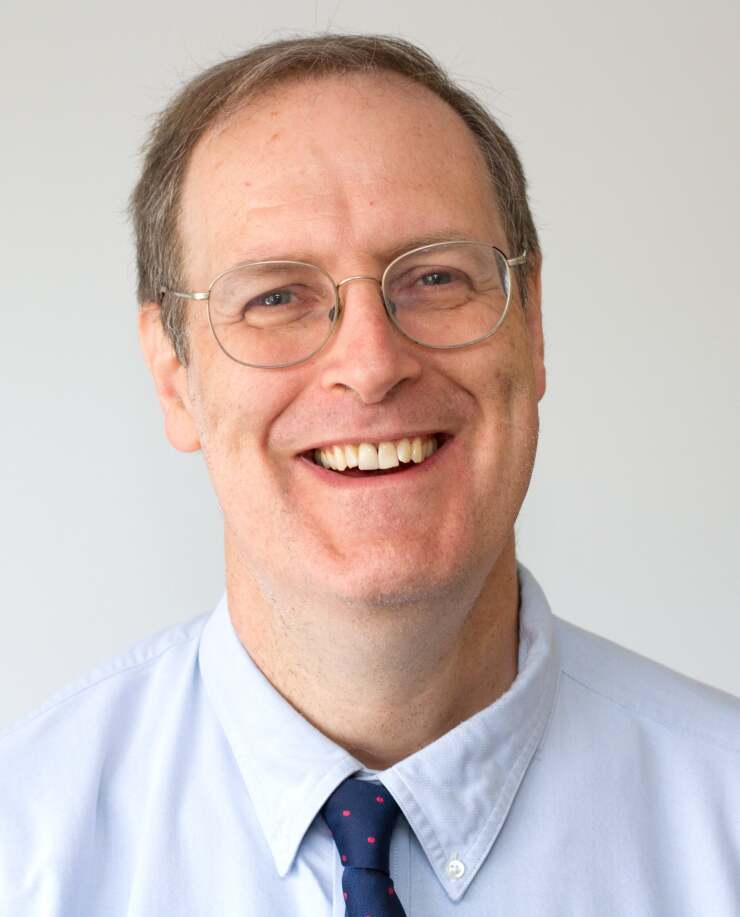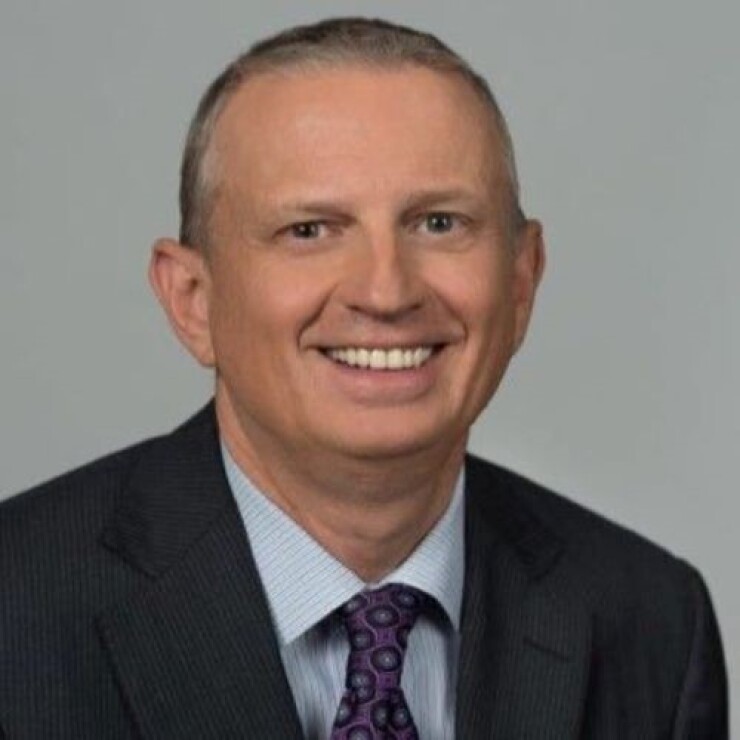President Donald Trump received mixed reviews on Tuesday after an appearance at the Economic Club of New York, as attendees questioned his claims of an economic boom as well his efforts to spur the Federal Reserve into cutting interest rates faster.
The Federal Reserve is making it harder for the economy to perform better by not allowing rates to move down more quickly, Trump said in his speech Tuesday. Despite the Fed raising rates by too much and then lowering them too slowly, the economy was still performing well, he said.
The president took credit for the broad economic growth, citing low unemployment, strong job creation and robust economic growth, and said the Administration had “delivered on our promises and exceeded our expectations by a very wide margin.”
He said his Administration has “launched an economic boom the likes of which we have never been seen before” despite a “near record number of rate increases and quantitative tightening by the Federal Reserve since I won the election. Eight increases in total. Which were, in my opinion, far too fast an increase and far too slow a decrease.”

He also said he was focusing on how the U.S. competes around the world.
“Because remember, we are actively competing with nations who openly cut interest rates, so that now many are actually getting paid when they pay off their loans, known as negative interest rates — who ever heard of such a thing,” he said.
“Gimme some of that. I want some of that money,” he joked, “but the Federal Reserve doesn’t let us do it. I don’t say that’s good for the world, but I’m not president of the world. I’m president of our country.
“But we are competing against these other countries nonetheless, and the Federal Reserve doesn't let us play at that game. It puts us at a competitive disadvantage to other countries. Yet in the face of this reality, our economic policies have ushered in an unprecedented tide of prosperity, surging all throughout the nation.”

In October, the Fed cut its fed funds target rate range to 1.5% to 1.75%, the third cut this year. While low, it is still higher than in Europe and Japan, which have gone into negative rates.
“We’re paying actually high interest. We should be paying by far the lowest interest,” Trump said.
After the speech, economic adviser Larry Kudlow told CNBC that he didn’t know whether Trump actually wants negative interest rates. “I don’t think the U.S. needs negative rates,” Kudlow was quoted by Bloomberg News as saying.
Economists and analysts said Trump had exaggerated growth under his leadership.
“On his broad claims about the economy, the underlying trends in output and employment don’t look very different than they did in the last several years of the Obama administration,"said William English, professor in the practice of finance at the Yale School of Management. "He is right that growth was relatively strong last year, but that reflected the temporary effects of the tax cuts on aggregate demand. But the tax cuts have boosted the federal deficit and do not appear to have boosted underlying growth. The higher deficits will reduce the fiscal space available to respond to the next downturn; it would be better to build fiscal space now so that we can use it when we need it.”

English, formerly worked on the Board of Governors of the Federal Reserve System, including as Director of the Division of Monetary Affairs and Secretary to the Federal Open Market Committee.
“On monetary policy, [Trump] reiterated his criticism of the Fed. He argued that interest rates are too high, and he said that he wants negative rates. This is exactly why central bank independence is important. Politicians facing elections always want very easy monetary policy: The short-term effects of monetary policy are to boost output, and that helps in the election. But in the longer term, the result is higher inflation,” English said. “So if monetary policymakers are subject to short-term political pressures, they may be inclined to ease now and not worry about the higher inflation that will follow the election. But the Fed is, rightly, keeping its eye on the medium term, and aiming to achieve its objectives of maximum employment and stable prices over time. The president’s comments are only making the Fed’s job harder by introducing political pressures.”
John Donaldson, vice president at Haverford Trust Co., said negative rates were a trade-off play.

“President Trump argued for lower rates from the Fed and came close to advocating for negative rates in the U.S. At the same time, he highlighted the U.S. growing faster than the rest of the G7. If negative rates are such a competitive advantage and a panacea for an economy, why are Japan and Germany teetering on recession rather than growing at 7%?,” Donaldson said. “One of the consequences of ultra-low rates is that borrowers disproportionately benefit at the expense of savers. When that relationship gets stretched by zero rates, there is no evidence that ever-lower rates help an economy and may even hurt.”
Donaldson said that financing the federal deficit was another concern if rates get to ultra-low levels.
“One of the causes of the turmoil in the Repo market was that investors resisted buying U.S. Treasury debt as the 10-year yield got below 1.5% in early September,” he said. “Subsequently, dealer inventories grew and needed more overnight funding than the market could provide. The Treasury needs to sell close to $4 trillion in debt before the end of 2020. If there was resistance to 1.5% rates, what might happen at zero rates?”
Donaldson said that perhaps a balance between rates — which remain low by historical standards but still provide returns to investors combined with growth which remains faster than other comparable economies — would be a good place to be right now.
Lukeman Otunuga, research analyst at ForexTime Limited, said the speech didn’t reveal any news on trade.

“Investors who were hoping for U.S. President Donald Trump to offer fresh insight on trade developments were left empty-handed after nothing new was brought to the table,” Otunuga said.
“Trump expressed confidence over the U.S. economy and highlighted how economic growth last year was the highest rate in over a decade,” he said. “However, he lashed out at the Federal Reserve while expressing dissatisfaction over the central bank’s monetary policy strategy,” he said. “According to Trump, ‘the Fed moved rates higher far too fast and lowered rates far too low, placing the U.S. at a competitive advantage to other countries.’ He also argued that stocks would have been 25% higher if it had not raised rates in 2018.”
In regards to trade, the president said “no country has cheated the U.S. more than China” something Otunuga asserted could strain U.S.-China trade relations ahead of a potential Phase One deal.
Robert Johnson, professor of finance at Heider College of Business, Creighton University, agreed that there was not much new in the speech.
“The speech was largely an economic victory lap,” Johnson said, adding that Trump was “continually denigrating previous administrations and making the case that the run in the stock market has been the result of economic policies pursued by his administration, notably removing burdensome regulations. ‘The stock market went wild the day after I was elected.’”

He said that Trump met expectations of most market watchers in that no details concerning trade policy were forthcoming.
“While no new positive details were forthcoming regarding trade talks with China, no negative surprises were evident,” Johnson said. “A big fear of market participants was the potential for hawkish comments regarding trade talks with China.”
He said the president had a unique view of world trade.
“Trump reiterated in this speech his worldview that global trade is a zero sum game. ‘We had horrible, incompetent trade deals.’ Trump contends that by putting America first, the U.S. economy will thrive. The whole premise of international trade is the idea of comparative advantage -- that is, both sides benefit in international trade. He indicated that a China Phase One deal could happen soon, but that we hold all the cards. ‘They are dying for a deal, we'll decide.’ He also indicated that if we don't get a trade deal, we'll raise tariffs.”
He added that “it is remarkable that we have a President who continually takes shots at the Federal Reserve and is tougher on the Federal Reserve than on the government in Beijing …. the Fed actually has been quite friendly to the Trump Administration, particularly this year with the interest rate cuts that started in January.”





